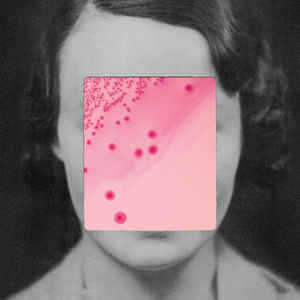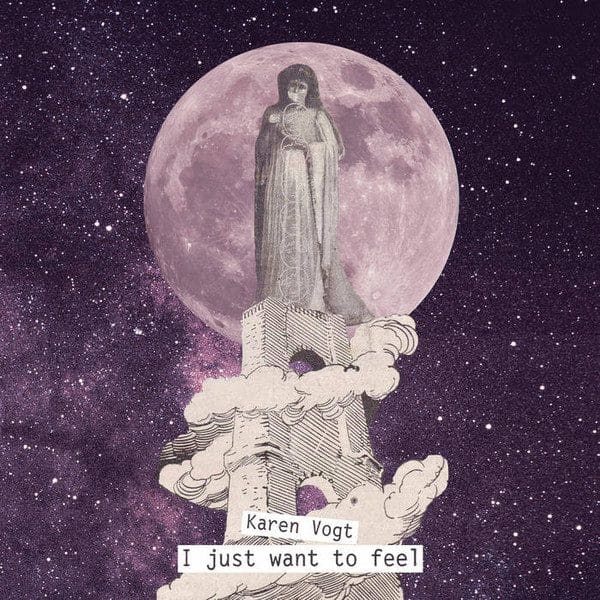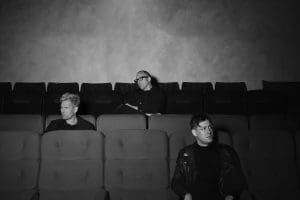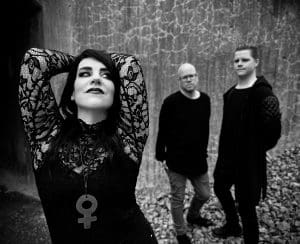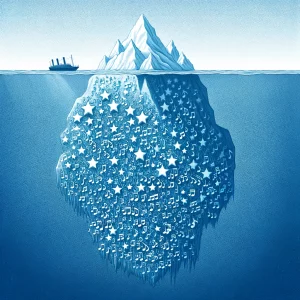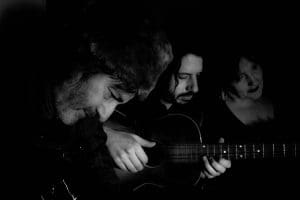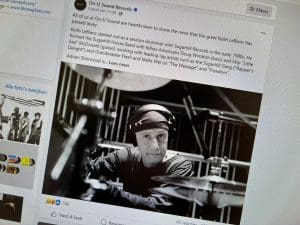‘Click’ Interview’ with Heligoland: ‘Heligoland Has Always Had A Strong Intuitive And Instinctive Approach’
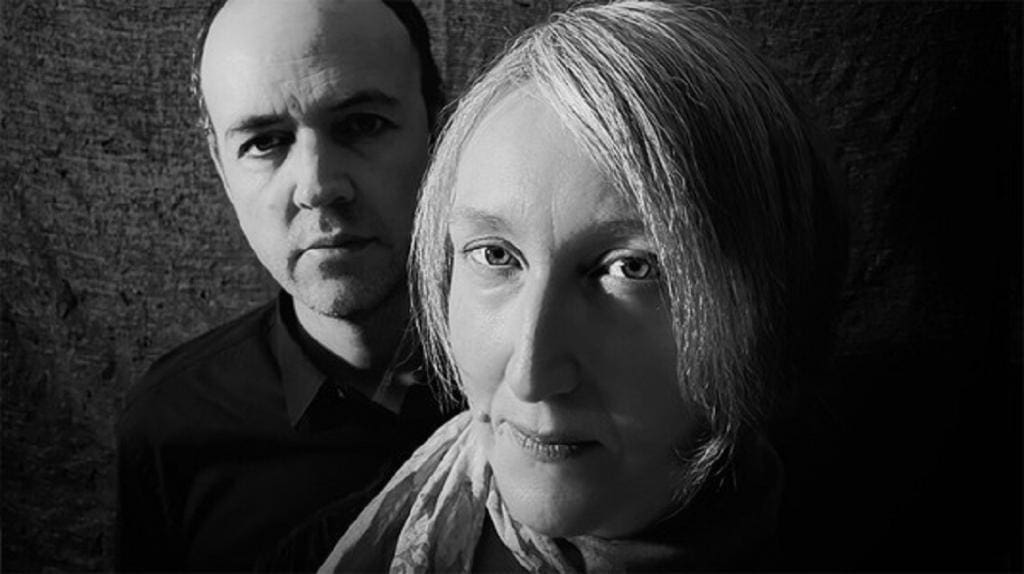

Heligoland is an Australian formation, which is already active for numerous years now. The band went through numerous line-up changes and is now driven by core members Karen Vogt and Steve Wheeler. Heligoland is now based in Paris (France) and this year released their first new album since 2011. “This Quiet Fire” (Editions Furioso) is a graceful work of Dream-Pop, which has been produced by Robin Guthrie. The work is an invitation to dream away, but still a true sensible piece of music.
(Courtesy by Inferno Sound Diaries)
Q: Heligoland is now active for more than 20 years. The band went through different line-up changes while I can imagine you as musicians changed/evolved as well. How did you see yourself evolving and growing as musicians from the early productions till the new album?
Karen: There’s lots of different ways of looking at this. On the one hand, it took me a long time to even really consider myself a musician. It’s always easy to define yourself primarily by what you do for work, so if you’re not primarily living from music it can feel sometimes like you’re not really a musician, no matter how much time, love, and energy you put into your music. I think this was particularly true when we were still living in Australia. That mental shift to seeing myself as a musician, regardless of whatever else is going on, really changed the way I value and appreciate what I have devoted my life to doing. Over such a long period of time there’s been other changes that have gradually taken place too. As I grew older, I realised that it doesn’t matter if I was never taught how to sing or play guitar or read music. That doesn’t really matter and there are many things I can bring to the band by just being myself and doing things in my own way. It’s all about the feeling and the energy that you bring to your music and I always feel drawn to giving more of myself in that way. I think I also evolved by opening up more with my lyrics and by spending more time on developing my vocals. Heligoland has always had a strong intuitive and instinctive approach to the songwriting and I feel this has become stronger in me throughout the years. I write music, I write lyrics, I sing, I arrange, I compose, I play instruments and now I can finally record, mix and produce my own music. At some point, you have to give yourself credit or you’ll never feel like what you do is enough. The older I get, the more I feel that there is to express. It’s like all the seeds you planted over the years start to grow and bloom. Some bands and artists can feel unwanted or left behind because of their age or how trends come and go, but I’ve never been interested in seeing music like that. It’s about creating a body of work and allowing that to grow, expand and evolve.
Steve: When we formed the band, aside from our original guitarist, none of us had ever been in a band before – let alone played a show as a band or made a record. It was all a big adventure and often quite daunting at times. All these years later, we’ve managed to do a lot more as a band than I think any of us ever imagined and taken our music to all sorts of unexpected places. As players I think we’ve not only become a lot more confident, but also learned to trust our intuition and our own sense of what we’re trying to achieve with a song, record, or performance. One thing I’m really happy about in hindsight is that we’ve always stayed fairly true to our sound. There’s been changes in the lineup over the years and everyone who’s been in the band at any given time has always brought something of themselves to the music, but I feel that we’ve always managed to maintain a sound and identity. Over the years I think we’ve learned how to nurture that musical identity, but also to how to mix things up a bit periodically without losing sight of that bigger picture.
Q: You’re living in Paris (France) for numerous years now so what has been the impact of living in Europe -and especially France/Paris, on the influences and sound of Heligoland? And do you think countries, cities and places generally speaking can have a true impact on your music?
Karen: The move from Australia to France has highlighted for me that music can both transcend and also be limited by different locations. We had a particular mentality when we played music in Australia and a particular way of understanding our music and audience. That changed when we came to Europe because we felt like audiences reacted differently to our music and seemed to be interested in different aspects of the music we make. Music also went from being something we did on the side in Australia, always second to our day jobs, to the main thing we did. Our perspectives changed in many ways that wouldn’t have been possible without relocating somewhere else. That move gave us an opportunity to expand our outlook a bit and also move beyond old ways of thinking about things.
Changing places and circumstances can definitely have an impact on the music you make, but it also depends on the extent you allow it to. I love the anonymity of living in a big city, but I also think it is really healthy and important to get out of the city a few times a year. A change of scenery stimulates the mind and can really supercharge your creativity.
Steve: The biggest influence that living in Europe has had on our music is that we’ve spent a lot more time working on it than we were ever able to in Australia. That has definitely had an effect on the kind of records we’ve been able to make. I’m not sure I could say that France or Paris have had a discernible influence on the music itself. The experience of living here is certainly mixed up in there somewhere, but I’m not sure I could point to anything specific and say it had something to with this city. Particular locations, the landscapes, the weather, the people – no doubt these all have some impact on music and creativity. It’s hard to judge from a single band though. If you have a whole group of artists or musicians that sound in some way related, maybe then it becomes easier to associate a location with a particular sound.
When we were making our series of EPs, I’m sure the locations had an impact in each case. The “Sainte Anne”-EP, for example, was recorded at the beginning of Spring in a tiny village in Franche-Comté. The room we wrote and recorded the songs in looked out over some fields, a stream, and a forest. It was a really tranquil, rural setting to make music. I feel like that definitely had an effect on the songs.
Q: “This Quiet Fire” is your first album since “All Your Ships Are White” (2010) although you released a series of EP’s in between both albums. How do you look back at this series of EP’s and what’s the difference with the new album? What kind of work did you want to accomplish with “This Quiet Fire”?
Karen: Looking back I see the series of EP’s as the band trying a bunch of different approaches and exploring different themes –each of which could have resulted in an album if we had explored that direction a bit further. The first EP, “Bethmale,” is very austere and has a gentle minimalism and a kind of hesitancy or tentativeness about it. The second EP, “Sainte Anne,” feels more lush, languid, summery and also benefited from the involvement of Antti Mäkinen, an amazing Finnish drummer who was playing with us at the time. The third EP, “Coriallo,” felt very emotionally intense and was recorded at a semaphore station that looked out on the English Channel. The scenery and weather were both dramatic. That last EP felt to me like I had tapped into something that I wanted to explore further.
Steve: The EP’s were a bit like a series of musical postcards from different places around France. All three were recorded quite quickly over the course of a week in a different remote location each time. As it turned out, each new EP seemed to get more complicated to write and record than the previous one, so by the time we got to “Coriallo,” we were taking a carload of equipment with us –multiple amps, guitars, keyboards, and so on. By comparison, when we did “Bethmale” I don’t think we took any amplifiers (the EP was written and recorded in a bar in Ariège which had a modest backline to use) and I recorded all the tracks on an old laptop using a single microphone, one instrument at a time. “Sainte Anne” was different again because we had to write the songs, record them, and then play a concert for the village at the end of the week.
The new album was, by design, a more considered affair. We didn’t want to limit ourselves to a single week-long writing/recording session, or anything like that, so we took a lot more time writing and working on the songs. If I remember right, at the outset we wanted to do something that felt a bit looser and less arranged than our previous album. I don’t think that idea lasted long, because we spent quite a lot of time on some of these songs. As always, the overarching goal was to make the best record we could.
Q: You released videos for the songs “Palomino” and “Hera.” Both clips are pretty sober and connected with elements of nature. What did you really try to express and what’s the connection with the lyrical content of the songs?
Karen: Both videos were made by two French filmmakers: Irina de Bertier and Guillaume Eymenier. In each case, we didn’t really discuss any particular ideas or approaches beforehand, we left it up to Irina and Guillaume to see where the music took them. The first time I saw the “Palomino” video I was really struck by how beautifully the imagery and flow of the video intertwined with the song. The images from nature, especially the footage of the mating dance of the blue dragonflies, felt like they reflected some of the themes I was singing about –unpredictability, boundaries, relationships, rhythms –in a really interesting and unexpected way. We were so happy with the “Palomino” video that we asked Irina and Guillaume if they could make a second video for another track. Again, we didn’t really discuss any ideas beforehand, we just let them follow their own ideas. All the things that we liked about the “Palomino” video were present in the “Hera” video too. Although the landscapes were completely different –maybe the total opposite! I still got the same sorts of feelings from the imagery. Both videos are quite understated and gentle, they don’t try to jump out of the screen or bombard with you with anything. Instead it feels like there is something much more interesting left unspoken and lots of connections between the music and video that are left up the viewer to find for themselves.
Steve: Whether it’s working with graphic designers on album artwork or filmmakers creating videos for our music, we’ve always really enjoyed seeing the images and ideas that other artists connect with our music. It’s never been important to us whether we appear in our videos –in fact, we usually try to avoid that, if at all possible. The new videos for “Palomino” and “Hera” are two of my favourites. Our songs are quite introspective for the most part, so these videos, which are both quite gentle and unassuming, feel like a really good fit for the lyrics and music. I also really like the fact that they are focused on scenes from nature and were filmed somewhere far away in the countryside. That also feels like a natural fit for the music. Irina and Guillaume did a wonderful job on both videos.
Q: You’re now working together for quite a long time so what makes this chemistry and what keeps artistic fire alive? How do you work together and especially on the new album?
Steve: I can understand how longevity might be a problem in some cases, but we’ve never really felt like we’re running out of ideas or that we need to try something radically different to keep things interesting. One thing that has probably helped us over the years is that we’ve never really tried to make detailed plans or spent too much time talking about the records instead of making them. There might have been some sort of general idea when we were writing some of the records –maybe try to make something that feels a bit more concise, or try to make something that feels less arranged –but most of the time we just got on with writing songs, picked out the ones we like best, and that’s what we focused on. Another thing that helps a lot is having a really gifted and intuitive singer. When we’re writing together, Karen has always been able to come up with lots of melodies or vocal idea that we can improvise and work around. Her voice has always been at the center of our music, so when we write songs it’s often been a case of listening to where the vocal is going and trying to follow that or create the context around it.
Karen: I think being independent really helps keep the artistic fire alive. We can choose to do as we please and move at our own pace when it comes to writing and releasing new music. We have never really felt any pressure to write in a particular way or make an album that sounds a particular way. I think having that level of control is important when it comes to longevity. Part of keeping the fire alive is also joyfully doing what needs to be done and wanting to contribute. I wrote and played a lot of the guitars on the new album –more than I ever have in the past. You just step up to do what is needed in the circumstances to write and record the songs. I also wrote three of the songs mostly by myself for this album. At the start of the process I was not expecting this might happen, but that’s how it worked out. Listening to these three songs as I was writing them, it was quite surprising to me that they still sounded like Heligoland. I think I had perhaps underestimated how much I have internalised over the years from writing our music and the sort of sensibility we have. That experience has opened up some new possibilities and ideas for future releases. The goal is now to see what we can come up with next and where our sound might go from here. It’s easy to commit to something that requires you to simply be yourself and do your thing.
Q: You again worked with Robin Guthrie as producer. What kind of producer is he and what’s his true addition to the original songs? Can you reveal a bit more details about the different stages of this collaboration?
Karen: Robin’s involvement has been a little bit different each time we’ve worked with him. Back in 2007 when we made “All Your Ships Are White” we had written all the songs for the album, we played him the demos, and he then joined us at a studio in Paris as our producer when we were recording all the basic tracks. The vocals and guitars were recorded later at his studio, which is also where he mixed the record. Each of the EP’s was written at a different location and the basic tracks recorded by Steve each time. Robin then mixed the recordings at his studio. When we came to do “This Quiet Fire” we invited Robin to come and join us at one of the writing sessions so he could hear what we were working on. He also contributed more instrumentation to the new album than the previous recordings, such as adding keyboards to many of the songs and playing bass on two tracks. It’s always been a very open and relaxed working relationship in that way.
It’s been a wonderful experience working with Robin on these records. From the point of view of a vocalist, he is just brilliant to work with. He encourages me to come up with new harmonies or go further with vocal ideas for the songs. He has so much experience from producing so many bands and records over the years that he intuitively understands how to help people get the best performances and guide them through the recording process. At the same time, he also knows how and when to push you a bit if he thinks you can get a better take or performance. There’s a lot of trust in the relationship and we find his feedback and suggestions invaluable. One of the many things I love about working with Robin is that he is so open about sharing the way he mixes and what he’s doing at any point in the process. His enthusiasm for recording and curiosity about equipment and recording techniques is infectious. Over the years he has encouraged me to learn to record my own vocals and helped me put together a home recording set up so I can learn to mix and produce for myself. I’m really grateful for all the support and encouragement along the way that he has given unconditionally.
Steve: I think the records we’ve made together with Robin during our time in Europe are the band’s best work. I couldn’t be happier with the way they sound. The production and mixing are way above and beyond anything I could ever have imagined for our music. I think he’s also done a brilliant job capturing the best work of everyone involved, especially Karen. Her vocals have never sounded better. While we were making these records, there was no effort spared to make them sound as good as they possibly could, right down to the tiniest details. It was always a wonderful experience being there in the studio watching him work on the songs.
Since you’re here …
… we have a small favour to ask. More people are reading Side-Line Magazine than ever but advertising revenues across the media are falling fast. Unlike many news organisations, we haven’t put up a paywall – we want to keep our journalism as open as we can - and we refuse to add annoying advertising. So you can see why we need to ask for your help.
Side-Line’s independent journalism takes a lot of time, money and hard work to produce. But we do it because we want to push the artists we like and who are equally fighting to survive.
If everyone who reads our reporting, who likes it, helps fund it, our future would be much more secure. For as little as 5 US$, you can support Side-Line Magazine – and it only takes a minute. Thank you.
The donations are safely powered by Paypal.

